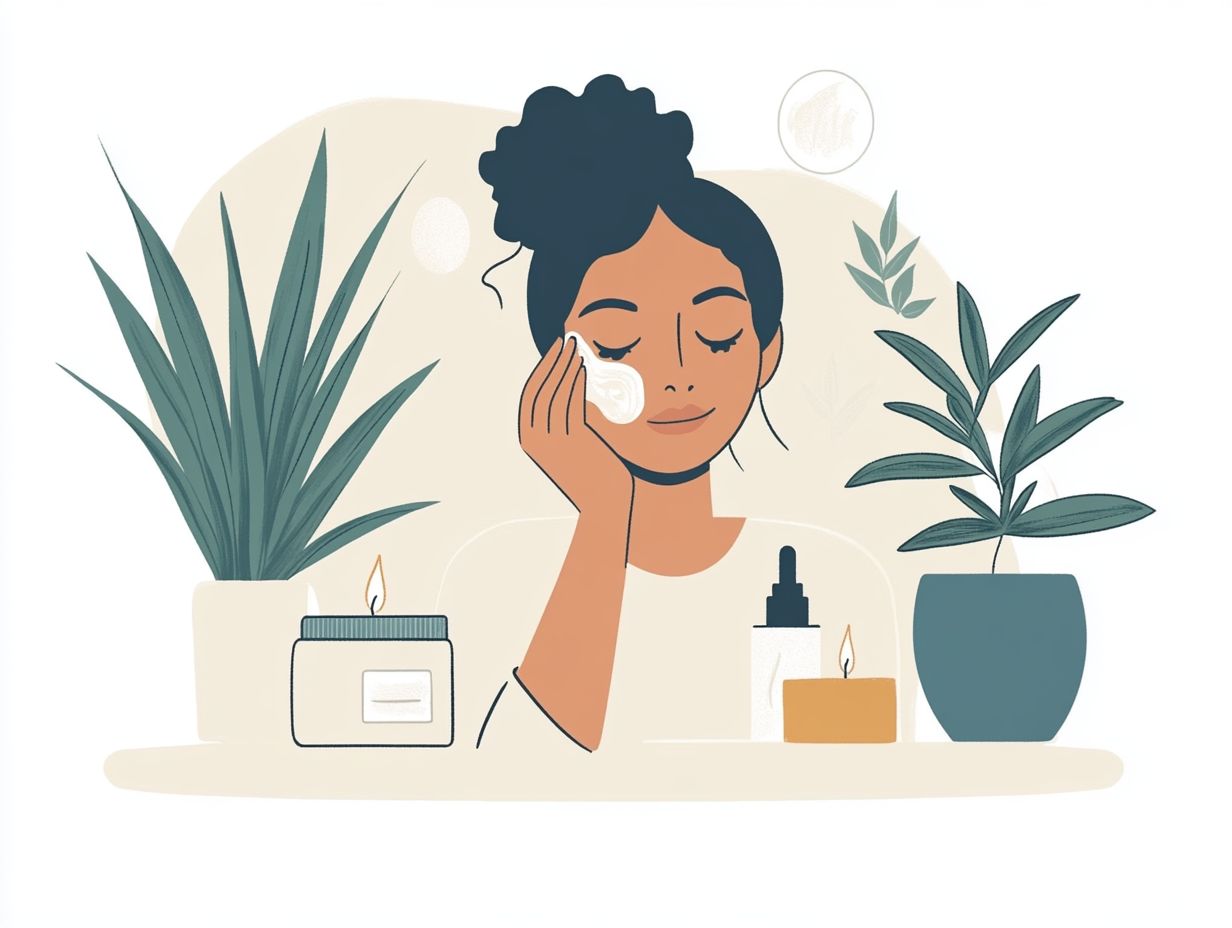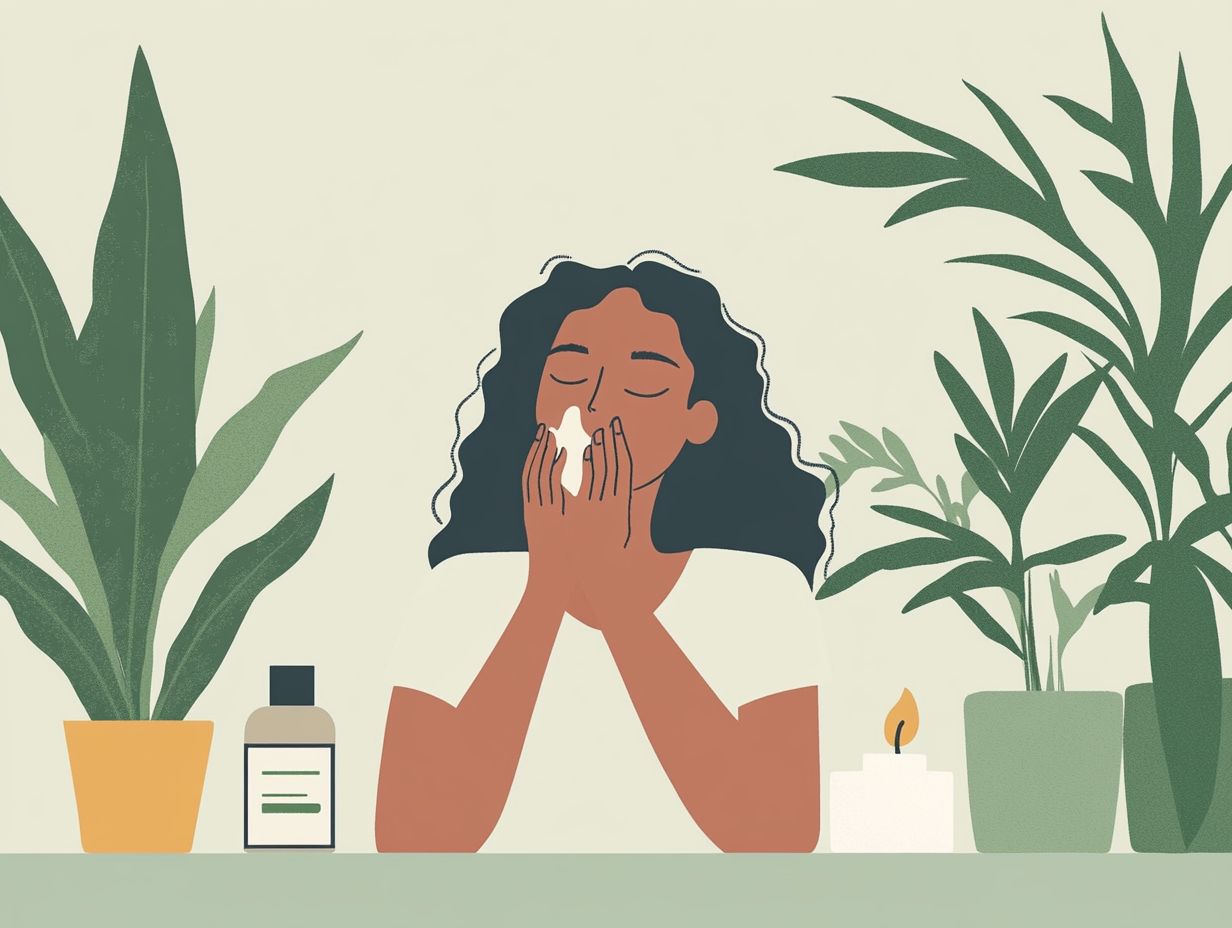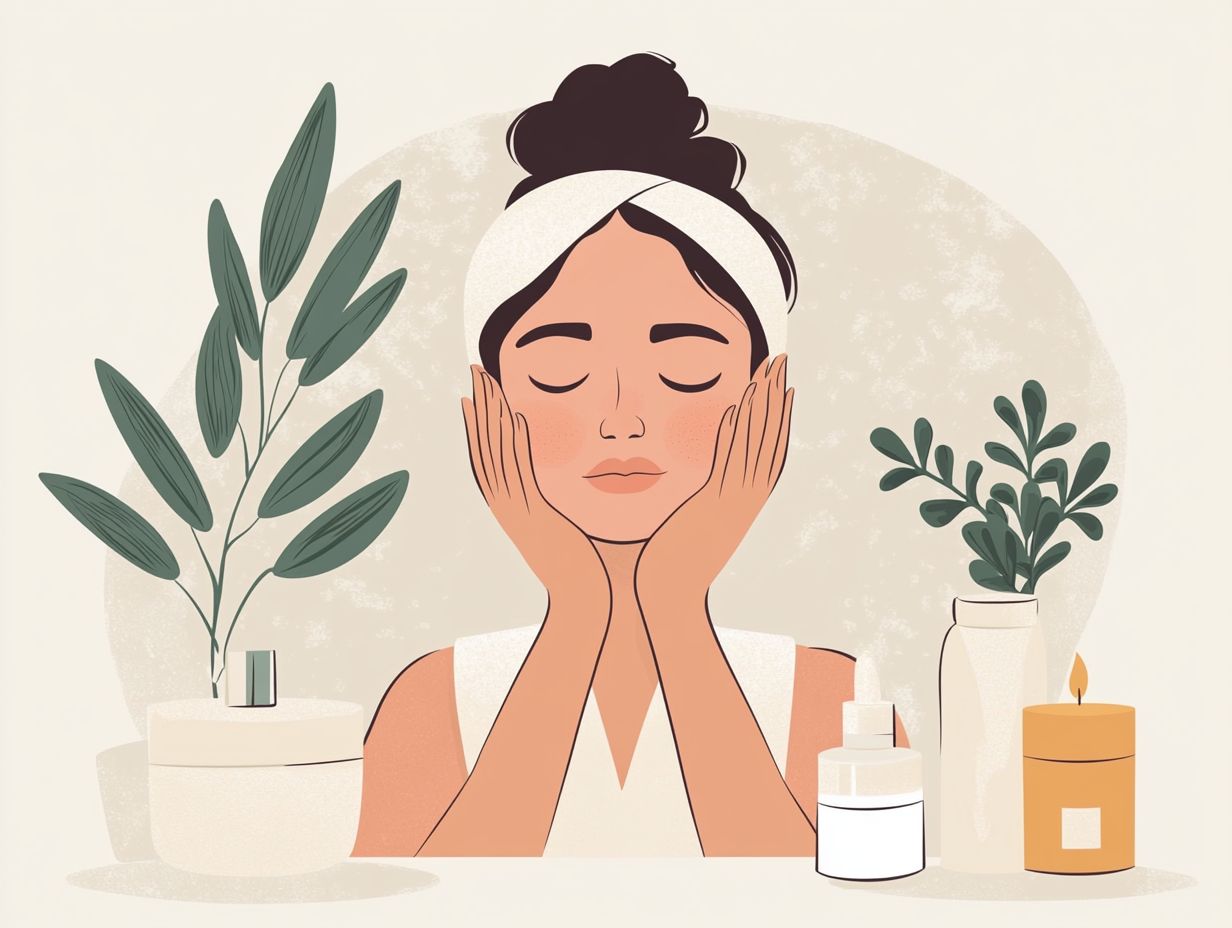Stress isn’t just a mental burden; it can take a significant toll on your skin health, leading to issues like breakouts, dryness, and premature aging.
This article explores the connection between stress and your skin, helping you identify common stress-related symptoms.
You’ll discover effective stress management techniques, skincare products that can help alleviate these issues, and lifestyle changes that promote clearer skin and overall well-being.
Dive in to learn how to regain your glow!
Key Takeaways:

- Stress can have a significant impact on your skin health, causing issues like breakouts, dryness, and premature aging.
- Identify common signs of stress on your skin, such as redness, dullness, and increased oiliness, to better manage and combat their effects.
- In addition to using skincare products and ingredients targeted towards stress relief, implementing healthy lifestyle habits and effective stress management techniques can greatly improve your skin’s appearance.
The Connection Between Stress and Skin
The intricate connection between stress and skin health is frequently underestimated, yet it significantly influences a variety of skin conditions. Chronic stress prompts the release of cortisol, a hormone that can elevate oil production in the sebaceous glands, thereby worsening issues such as acne and eczema.
Furthermore, stress can compromise the skin barrier, rendering it more vulnerable to inflammation and various dermatological problems, including dryness and rashes. This, in turn, adversely affects overall health and well-being.
How Stress Can Impact Skin Health

Stress can have a profound impact on skin health by initiating a series of hormonal changes and inflammatory responses that exacerbate pre-existing skin conditions such as acne, psoriasis, and eczema.
When the body experiences stress, it releases elevated levels of cortisol, a hormone that can increase oil production in the skin. This excess oil can clog pores, leading to breakouts and a deterioration of acne. Furthermore, cortisol promotes inflammation, which can worsen conditions like eczema and psoriasis, both of which thrive in inflammatory environments.
Individuals may observe that their skin flare-ups often coincide with periods of heightened stress, underscoring the direct connection between emotional well-being and dermatological health.
Potential preventive measures include practicing mindfulness, establishing a consistent skincare routine, and engaging in physical activities that effectively reduce stress levels. These strategies can contribute to maintaining healthier skin in the face of life’s challenges.
Signs of Stress on the Skin
Recognizing the signs of stress on the skin is crucial for effective management and treatment. Symptoms may present in various forms, including dryness, rashes, wrinkles, and heightened sensitivity.
Identifying Common Symptoms

Common symptoms of stress on the skin may include the emergence of acne, rashes, and exacerbations of conditions such as eczema and psoriasis, which can result in discomfort and feelings of self-consciousness.
These manifestations often indicate an internal struggle, wherein elevated stress levels provoke an inflammatory response in the body, leading to visible signs on the skin. For instance, individuals may observe increased sensitivity of the skin, resulting in an overall dull complexion or excessive dryness.
The psychological ramifications of these changes can be substantial, as they may lead to feelings of embarrassment or anxiety.
To effectively monitor skin health, it is imperative to maintain a consistent skincare regimen, track any fluctuations in skin conditions, and identify triggers associated with stress levels. This approach fosters a deeper understanding of the relationship between emotional well-being and physical appearance.
Ways to Manage Stress for Better Skin
The implementation of effective stress management techniques is essential for maintaining healthy skin. Practices such as relaxation techniques, regular exercise, and sufficient sleep can significantly reduce stress levels, contributing to improved skin health.
Effective Stress Management Techniques

Effective stress management techniques include a mix of relaxation methods, regular physical exercise, proper nutrition, therapeutic interventions, and dedicated self-care routines, all of which can significantly enhance skin health.
By integrating these strategies into daily routines, individuals may observe notable improvements in the appearance of their skin and overall well-being. For example, the practice of mindfulness or meditation can effectively reduce cortisol levels, which, when elevated, may contribute to breakouts and other skin-related issues. Engaging in regular cardiovascular exercise not only enhances circulation, delivering essential oxygen and nutrients to skin cells, but also aids in the elimination of toxins through perspiration.
A diet rich in antioxidants, vitamins, and minerals can mitigate oxidative stress, thereby supporting a radiant complexion. Furthermore, professional therapy sessions can provide invaluable emotional support, addressing underlying issues that may trigger stress-induced skin conditions.
Each of these techniques underscores the critical role of mental well-being in achieving and maintaining healthy, vibrant skin.
Skincare Products and Ingredients to Combat Stress
Selecting the appropriate skincare products and ingredients is crucial in addressing the effects of stress on the skin. Options are available across a spectrum, from natural remedies to advanced chemical formulations specifically designed to enhance hydration and overall skin health.
Natural and Chemical Options
Natural options such as aloe vera and chamomile can provide soothing effects for stressed skin, while chemical alternatives like hyaluronic acid and retinoids offer targeted hydration and anti-aging benefits.
Individuals seeking a gentle, calming approach may opt for these natural ingredients to alleviate redness and irritation. Conversely, others may explore the efficacy of chemical formulations to address the signs of aging that often accompany stress. For example, retinoids are well-regarded for their ability to boost collagen production and effectively reduce fine lines; however, they may also cause irritation if not used with care.
In contrast, aloe vera not only provides hydration but also promotes healing and reduces inflammation, making it an excellent choice for those with sensitive skin. Ultimately, the selection of the appropriate skincare option may depend on individual skin types and concerns, necessitating a balance between the healing properties of nature and the benefits of scientifically formulated solutions.
Lifestyle Changes to Improve Skin and Reduce Stress
Implementing lifestyle changes that enhance both skin health and stress reduction can substantially improve overall well-being. Key factors include:
- Regular exercise
- Balanced nutrition
- Incorporation of mindful self-care routines
Healthy Habits for Clearer Skin
The development of healthy habits, including consistent exercise, balanced nutrition, and a comprehensive self-care routine, can contribute to clearer skin and more effective stress management. For more information, check out How Stress Affects Your Skin and How to Combat It.
Incorporating regular physical activity not only enhances circulation but also promotes the release of endorphins, which can improve mood and reduce anxiety. A diet rich in antioxidants, vitamins, and minerals supports skin health by combating inflammation and encouraging cell regeneration.
Engaging in mindfulness practices, such as meditation or yoga, can help lower cortisol levels. Elevated cortisol can contribute to skin issues, including acne and eczema.
When these habits are integrated, their cumulative effects foster a holistic approach that nourishes both the body and mind, resulting in a radiant complexion and a more serene disposition.


